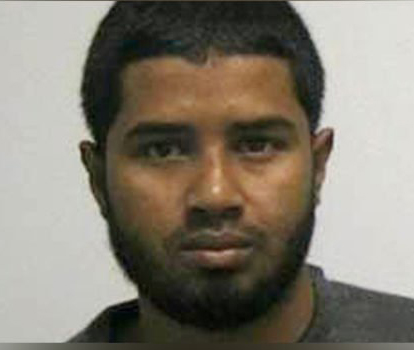
Bangladeshi government officials have told the U.S. that Akayed Ullah is a product of U.S. homegrown terrorism .
Bangladesh has communicated with the US government that it has no record on Akayed Ullah’s involvement with the militancy here and termed him as a “homegrown US terrorist,” a senior Bangladesh government official said on Tuesday.
Here is the Affidavit in support of the Complaint against Ullah. Among other things, it states that Ullah wrote on his FB page, “Trump you failed to protect your nation.”
The Affidavit states Ullah told authorities his attack was ISIS-inspired and he began following ISIS sites online in 2014. (What took him so long to act, and why now, after ISIS has lost so much ground in Syria and Iraq?)
ISIS has been calling for homegrown attacks in the U.S. and Europe since shortly after it declared its Caliphate in June, 2014. Deceased ISIS spokesman al-Adnani called for homegrown attacks in September, 2014.
The 4th issue of ISIS’ Dabiq magazine, published in October, 2014, also called for lone wolf type attacks on the west.
Every Muslim should get out of his house, find a crusader, and kill him. It is important that the killing becomes attributed to patrons of the Islamic State who have obeyed its leadership. This can easily be done with anonymity. Otherwise, crusader media makes such attacks appear to be random killings.
In January, 2015, al-Adnani released “Die in Your Rage”:
Likewise, we renew our call to the muwahhidīn in Europe and the disbelieving West and everywhere else, to target the crusaders in their own lands and wherever they are found. We will argue, before Allah, against any Muslim who has the ability to shed a single drop of crusader blood but does not do so, whether with an explosive device, a bullet, a knife, a car, a rock, or even a boot or a fist. Indeed, you saw what a single Muslim did with Canada and its parliament of shirk, and what our brothers in France, Australia, and Belgium did – may Allah have mercy upon them all and reward them with good on behalf of Islam. And there were many others who killed, ran others over, threatened, frightened, and terrorized people, to the extent that we saw the crusader armies deployed on the streets in Australia, Canada, France, Belgium, and other strongholds of the cross to whom we promise – by Allah’s permission – a continuation of their state of alert, terror, fear, and loss of security. And what lies ahead will be worse – with Allah’s permission – and more bitter, for you haven’t seen anything from us just yet.
After the Charlie Hebdo killings, I wrote:
The West is so focused on “returning fighters” it is missing the ball on those who present a greater danger: The ones who never left. ….The ISIS videos are worth watching because they are not just recruitment videos. They provide a road map of what is to come. In this latest video, they threaten more attacks on the West, using images from France and Canada and the logos of various TV stations. They clearly say why they are attacking the West. It’s retaliation for the airstrikes.
After the killings in Tunisia in June, 2015, I again wrote about the difference between ISIS-inspired vs. ISIS-directed attacks:
I don’t think ISIS has any intention of planning, directing or micro-managing lone wolf attacks against Westerners. It wants its supporters to act on their own. From Almedy Coulibaly to Tunisia, I think what we are seeing is ISIS-inspired but not ISIS directed.
I also think “sleeper cell”, by definition, is the wrong term to use in connection with these attacks against Westerners. A better term is grass-roots jihadists. There doesn’t seem to be much evidence that ISIS sent people to Tunisia, France, Canada, or the U.S. with instructions to lay dormant until receiving activation notice from ISIS.
Authorities will search high and low for accomplices in these attacks, and they will likely find some. But I doubt the accomplices are likely to have had any more direct contact with ISIS than the perpetrators.
The point being immigration had nothing to do with Ullah’s attack. He came here at age 11. He is now 27. He was radicalized here, by material he read online. He was angry at the U.S. actions in the Middle East.
